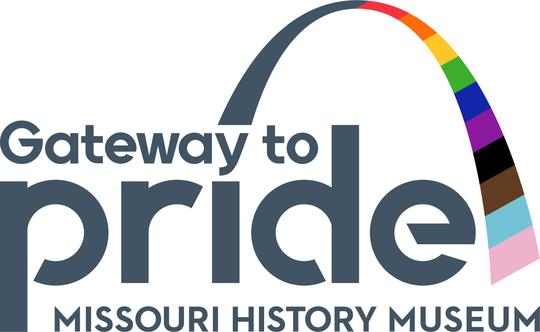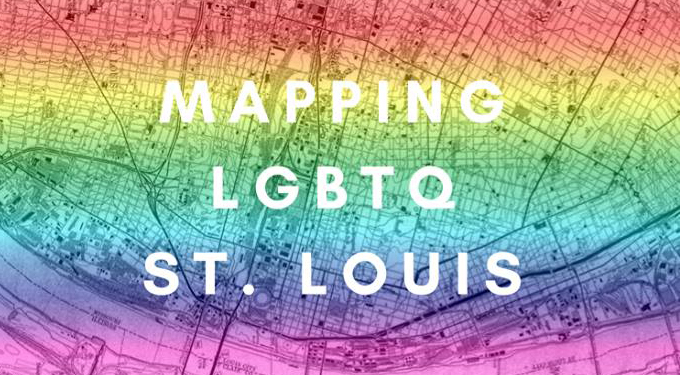1980 Pride Speech
Sunday, April 20, 1980
St. Louis Pride Keynote Speech
by Larry Davis, Co-chairperson of the National Association of Social Workers Task Force on Gay Issues
Dedicated to the Great Lesbian Mother of Social Work, Jane Adams, and my Friend and Lover, Stephen
One evening several weeks ago I was watching a "Lou Grant" program that dealt with a gay murder and the agonizing coming out process of a character who was a closeted Los Angeles police officer when the telephone rang. I answered the phone and Frank Sprayberry of the Magnolia Committee was speaking at the other end of the line. He told me that the committee was at that moment meeting and putting together a list of speakers for this rally. He then asked me if I would be a speaker. My immediate reaction was an emotional one of waves of fear pouring over me. With little or no hesitation I blurted out "No Frank, l'm sorry but I cannot do it. l'm afraid that it would jeopardize my job."
When I hung up the receiver my first thought was, "Larry, by refusing you are compromising every principle by which you live. If you can be public and open in Washington D.C., Boston, Los Angeles and San Antonio, then why can't you be public and open in your home town? What you can't do is say no!"
In less than five minutes I telephoned Frank and possibly confused him by retracting my original refusal.
I would like at this point to thank Frank and the committee for helping me to push open my personal closet door a bit more.
As Co-chairperson of the National Association of Social Workers Task Force on Gay Issues I am very publicly identified as gay within the organization of the Association. Eighty thousand social workers know that there is a task force working to end the discrimination within our profession that is experienced by gay and lesbian social workers and the clients that we serve.The primary objective in the task force is to educate our colleagues to the realities of gay and lesbian lifestyles and thus explode the myths about gay people that generate fear and hostility in our society.
Our hope is that our colleagues, whatever their affectional orientation, will contribute to the growing awareness that being gay is not a condemnation to living in fear of self and others. Being gay is in reality a celebration of diversity in the family of all humanity.
We are here today, each of us, for our own personal reasons. I am here for many reasons, not the least of which is to come out publicly in my hometown.
I am also here for my gay brothers and sisters who cannot be here. They honestly cannot be here. Some among us might be quick to bitterly complain at their absence and to feel smug about the rightness of our presence in this group.
Take a moment to grieve their absence. Share the grief that they feel in their daily lives. The grief that accompanies the fear of being known as a gay person. Grieve the fact that in many instances there would be the probability of loss of job and rejection by family and friends. Not all of the rejecting family members and friends would be heterosexual homophobes; some would be homophobic closeted gay men and lesbian women.
How many of the gay people present in this group are truly aware of the fearful plight of the lives of our people? Let me cite a few examples, and while I do, ask yourselves how aware you are:
- The gay child who is taught only heterosexual models for growing and developing as a human being.
- The gay adult who is a resident of a school and hospital for the mentally retarded.
- The drug abuser who tries desperately to anesthetize pain, fear and loneliness with alcohol, pills or other chemical substances.
- The married gay man or woman who is isolated from the gay community.
- Our elders who are unknown to us because we do not seek them out.
- The handicapped who we ignore because their difference makes us uncomfortable.
- The professional person who is closeted in order to ensure professional credibility in our homophobic society.
These and many more comprise our gay people. Be aware that we are found throughout the fabric of our society.
Learn that we don't have to be super people. We can be and are human. We have our Jane Adams, Walt Whitman, Eleanor Roosevelt and Harvey Milk. We also have our office and factory workers) homemakers, professionals, truck drivers, construction workers, sales people, police officers and military personnel.
We are lovers, fathers, mothers, spouses, children, adolescents, grandparents, aunts, uncles, cousins, brothers, sisters and friends.
The women said it well in Houston when they said, "We are everywhere." We sometimes choose to ignore that we are indeed everywhere. There are those of us who are thieves, murderers, child and spouse abusers and neglectors, rapists of women and men. We must acknowledge this fact in our own developing sense of identity as a people. To do otherwise would be to pretend that we are not human.
For too long many people in our society have attempted to deny us our humanity. We must not contribute to that denial process by pretending that the undesirable traits found in human behavior are not found in our people. It is not pleasant to dwell upon our problems as a people. The importance of confronting the problems squarely and exploring ways in which to eradicate the last vestige of hate and bigotry cannot be overly stressed.
The Stonewall riots eleven years ago marked a new chapter in the identity of gay people. It was the first time in modern memory that a group of gay people took action against their oppressors. Since that June night in 1969 we have had eleven short years to begin developing networks of communication across this land; and strategies for the constant movement towards improving the quality of our lives with a positive gay identity. It is remarkable how much we have accomplished in so short a time.
The very fact that we have today marched down Lindell Boulevard on a Sunday afternoon in the buckle of the Bible belt is proof in itself of how far we have come in eleven years. The presence of our heterosexual friends and family members in this gathering is indicative of the effect of our outreach to others and their positive response to us.
Yes, fear and hatred of gay people is still alive and very much operating in our society. Queer baiting continues to be sport for some. Fire bombings still destroy our gathering places. Gay people commit suicide rather than face exposure. This homophobia is evidenced in the most otherwise liberal and accepting of communities. Not all of it, however, flows from the homophobes in the heterosexual community. Many of us continue to oppress our brothers and sisters with our fear.
I believe that fear is generated by ignorance of others lifestyles and differences. In order to rid ourselves of the ignorance we must take the risk of communicating with those whom we fear or distrust.
Gay men and women must work together to overcome our ignorance and myth- oriented understanding of each other.
For too long in most environments gay women and men have avoided each other at best and have hurled insults at worst. Not all of us do this. Some of us have worked hard to learn about each other and to share what is common to us. The risk taking is not easy, but it is necessary if we are to present ourselves as a united people unwilling to accept anything less than our birthright as human beings in a world of other human beings.
We must cast off the oppressive yokes of bigotry which prevent us from achieving understanding among ourselves and others in our society. We are black, brown, red, yellow and white. We are Christians, Jews, Moslems, Pantheists, Hindu, Buddhist, Atheist and Agnostic. We are educated and under-educated. We are rich, poor and everything in between. The litany of the jewels of our differences goes on and on.
Let us use this celebration today as a beginning point of our individual dedication to reaching out and touching the hearts and minds of other people. Rather than saying "I can’t do it", let each of us say in our hearts, "I cannot do other than this and be true to myself".





